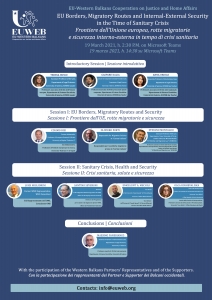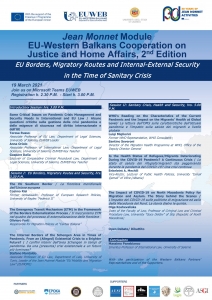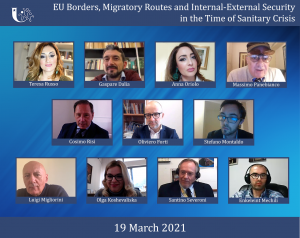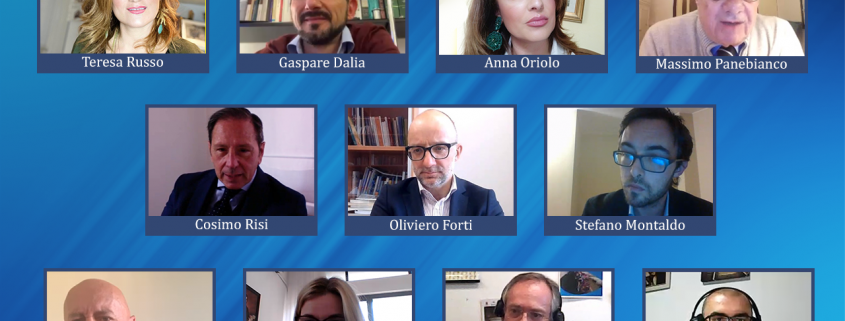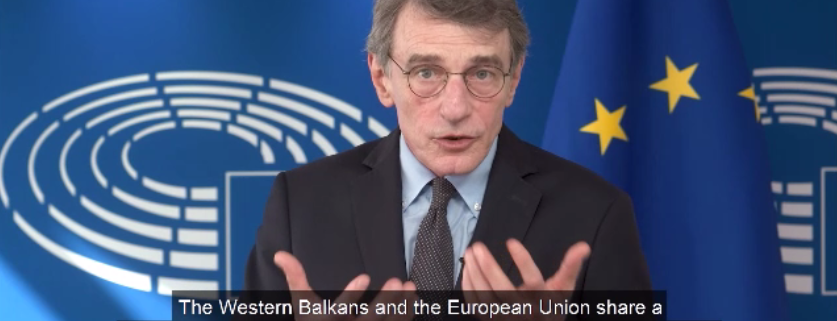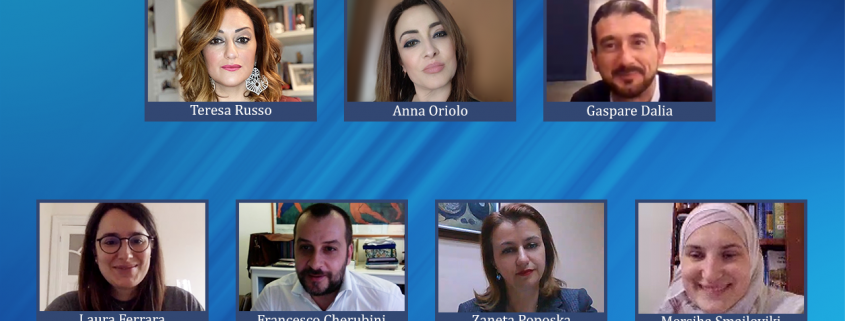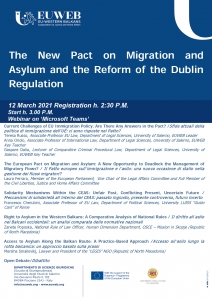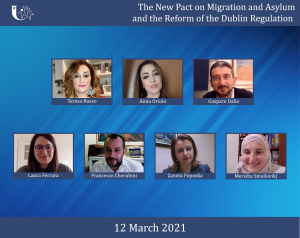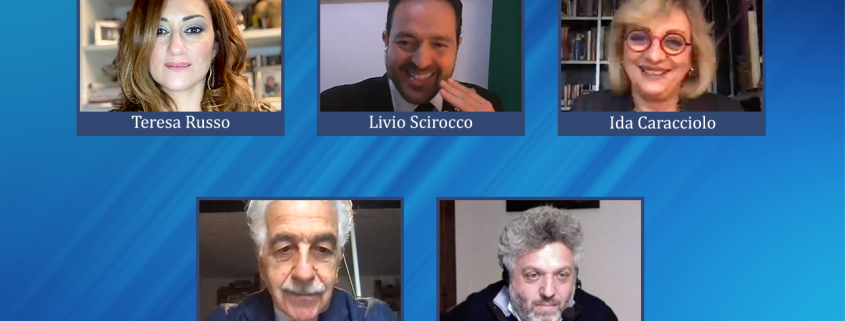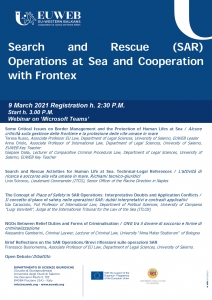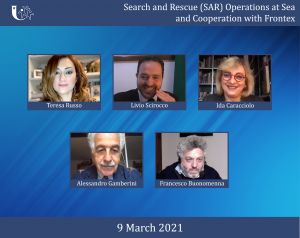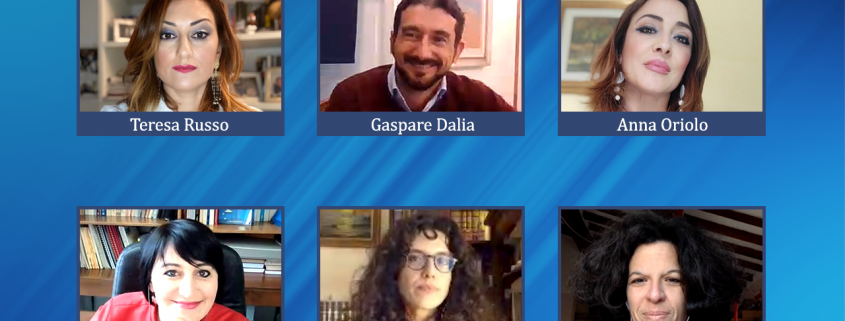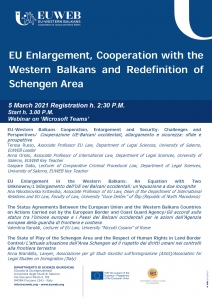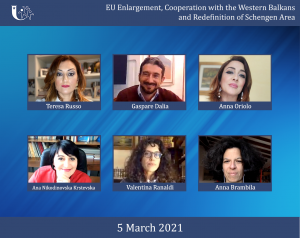On Friday 19 March 2021, starting at 2.30 pm, on the “Microsoft Teams” platform, as part of the activities of the “EUWEB” Jean Monnet Module, the Conference on “EU Borders, Migratory Routes and Internal–External Security in Times of Health Crisis” took place. After the Introductory Session of the Key Teachers, Profs. Gaspare Dalia and Anna Oriolo, and of the Module Leader, Prof. Teresa Russo, (Some Critical Issues on Pandemic Crisis Management and Security Needs in International and EU Law) two separate sessions followed. The first session (EU Borders, Migration Routes and Security, hrs. 3.30 p.m.) was animated by the speeches of Prof. Cosimo Risi (The Southern Border of the European Union), Dr. Oliviero Forti (The ETM Mechanism in the Framework of the Borders Externalization Process), and Prof. Stefano Montaldo (The Internal Borders of the Schengen Area in Times of Pandemic. From an (Alleged) Existential Crisis to a Brighter Future?). The second session (Sanitary Crisis, Health and Security, hrs. 5:00 p.m.) saw the speeches of Dr. Luigi Migliorini and Santino Severoni (WHO’s Reading on the Characteristics of the Current Pandemic and the Impact on the Migrants’ Health at Global Level), Prof. Enkeileint Mechili (Is the Health Status of Refugees/Migrants Deteriorating during the COVID-19 Pandemic? A Continuous Crisis) and Prof. Olga Koshevaliska (The Impact of COVID-19 on North Macedonia Policy for Migration and Asylum. The Story Behind the Scenes). After the open debate, the conference was closed by the reflections of Prof. Massimo Panebianco.
